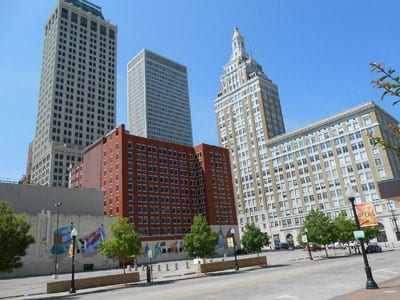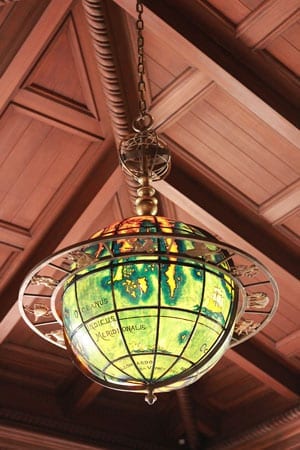Factoring Companies in Tulsa
Invoice Factoring, Easy as 1-2-3
Invoice factoring, also referred to as accounts receivable financing, is a cash-flow solution that eliminates the gap caused by slow-paying customers.
While there are many factoring companies in Tulsa and the surrounding areas, Scale Funding makes invoice factoring quick and simple.
Step 1: Contact Scale Funding and ask about our Tulsa invoice factoring programs. One of our knowledgeable team members will provide you a quote and approval in as little as 15 minutes.
Step 2: Once you’re setup, send your invoices directly to Scale Funding.
Step 3: Get same-day cash on your invoices. We’ll deposit a competitive advance on your invoice amount directly into your bank account almost instantly.
Once your customer pays the invoice, we’ll remit the remaining balance to you minus a small fee for our services. Our Tulsa accounts-receivable financing programs offer some of the lowest rates and highest advances in the industry.
Making Financing Available to You
Scale Funding is able to provide financing to companies in unique situations. Our creative finance solutions and flexible programs make us the clear answer when choosing between factoring companies in Tulsa and Oklahoma.
If you answer “yes” to any of the questions below, our invoice factoring and accounts-receivable financing programs may be a good fit for you.
| Are you in need of quick cash? | If you need cash and you need it fast, look no further than our Tulsa invoice factoring programs. We’ll get you funded same-day. |
| Are you waiting to get paid? | Slow-paying customers make it difficult to manage your finances. Invoice factoring take this problem away by providing you with the cash you need. |
| Are you a start-up company? | Many start-ups have little to no working capital after they’ve invested the majority of their cash into opening their doors. Get paid on your invoices same-day so you have the cash to operate. |
| Are you expanding? | If you’re turning down work because you don’t have working capital, our Tulsa accounts-receivable financing programs will eliminate this issue by providing you with the working capital you need to grow. |
| Do you have maxed-out or less-than-perfect credit? | Unlike a business loan or lines of credit, our programs are dependent on your customers’ credit rather than yours. |
| Did the bank turn you down? | When the bank says “no,” we say “yes.” |
| Do you have a tax lien? | Our flexible and custom programs give us the ability to work with unique situations, even tax liens. |
| Did you file for Chapter 11 bankruptcy? | Our programs work with companies that have filed for bankruptcy. For more than 20 years, we’ve helped companies get back on their feet and back to financial freedom. |
Invoice Factoring for Many Industries
Scale Funding is able to work with many industries and many different business sizes. Our monthly invoice factoring programs range from $50,000 up to $20 million. Our team is knowledgeable in several industries including, but not limited to:
- Trucking & Freight
- Oilfield Services
- Telecommunications & Wireless
- Heavy Construction
- Technology
- Government Contractors
- Staffing Agencies
- Utility & Pipeline
- Renewable Energy
- Many More
Tulsa


Tulsa has a very diverse economy beginning with the energy industry and expanding to include aerospace, health care, technology, information and finance, manufacturing and transportation. Three Tulsa companies made it to the Fortune 500 list in 2015, all of which are energy companies, including ONEOK, NGL Energy Partners and Williams Cos.
Historically, the state of Tulsa’s economy has been based upon the energy industry starting as far back as World War I. The industry has seen its ups and downs, however with new technology and drilling techniques and the rise of natural gas Tulsa’s energy sector is as busy as ever. In addition to the above named companies, there are many other energy company headquarters in the area including SemGroup, ONE Gas, Syntroleum, Laredo Petroleum and Warren Petroleum. The largest energy employer in Tulsa is ONEOK with over 4,000 engineers, professionals and skilled workers.
The aerospace sector in Tulsa is unique in that it includes schooling, manufacturing, maintenance, pilots and even a large unmanned drone program funded by the U.S. Small Business Administration. American Airlines employs over 5,000 skilled and licensed aircraft and jet engine mechanics, engineers and workers at their 260-acre American Airline Maintenance & Engineering Center. This center serves as the company’s global maintenance and engineering headquarters.
The 3rd and 4th top employers in Tulsa, Saint Francis Health System and St. John Medical Center, employ over 12,000 healthcare professionals. Saint Francis Health System is a nonprofit Catholic healthcare system, which offers a full array of medical care needs ranging from primary care doctors and pediatricians to full hospital facilities and specialized services including heart, cancer and stroke centers.
The finance sector is another sizable one with Bank of Oklahoma headquartered in Tulsa and employing over 4,000. Other financial companies include energy trading companies, asset management firms, investment firms and numerous commercial banks.
History
The area that is now known as downtown Tulsa was first settled by Native Americans in 1836, largely due to the location’s proximity to the Arkansas River, and was named Tallahassee. Very soon after, the “Five Civilized Tribes,” Cherokees, Choctaws, Chickasaws, Creeks, and Seminoles, all migrated to the area bringing their ideas of trade and commerce. For about 10 years the area would remain traditionally unsettled with the first real establishment, a log cabin trading post, being forged in 1846 by Lewis Perryman who was part Creek Indian. The Civil War forced many inhabitants out of the area but the reconstruction period brought back the population and some.
After the first Post Office was established in March 1879, the name Tulsa was adopted. At this time the population was around 200 but grew to over 1,100 by 1898. After the Sue Bland No.1 oil well struck oil, another sizable increase in population happened. The Commercial Club was formed as a result of this event to promote and advertise Tulsa as a big name on the oil and natural gas front. In 1905, preparations for the boom began with house manufacturing, businesses opening shop, and water systems being formed. This is when Tulsa became known as the Oil Capital of the World. The first airport was built shortly after and funded by a group of local businessmen. The oil industry in Tulsa did not slow down until after World War II with the introduction and takeoff of offshore drilling. In the oil industry’s slowness came a boom of aerospace with the formation of American Airlines and the establishment of their maintenance center. Some 300 plus aviation companies would eventually follow suit.
In 1970, the Tulsa Port of Catoosa opened and connected Tulsa with the world’s water channels through the Mississippi River and the Gulf of Mexico. The opening of this port really put Tulsa on the map for global business. Tulsa became a very popular place to do business due to its diverse industry sectors, transportation means and low cost of doing business.
Education
The Tulsa area is home to more than 15 colleges, universities, and higher education institutions. The most prominent include University of Tulsa, University of Oklahoma – Schusterman Center, Oklahoma State University – Tulsa, Oral Roberts University, Tulsa Community College and the Spartan School of Aeronautics.
Culture and Recreational Activities


factoring companies in Tulsa
Museums and Art
Tulsa has a very active art community, managed by the Living Arts of Tulsa, including several internationally recognized museums. The Philbrook Museum of Art is considered one of the top 50 fine art museums in the United States and one of only five to house the unique combination of a historic home, formal garden, and an art collection. Pieces in the extensive collection include artwork by Pablo Picasso, Auguste Rodin, and Georgia O’Keeffe. The Gilcrease Museum, located in Northwest Tulsa, has the world’s largest collection of art and artifacts of the American West. Founded by Native American oilman Thomas Gilcrease, the museum contains works by Frederic Remington, Thomas Moran and John James Audubon.
Performing Arts and Concerts
Tulsa has an assorted variety of permanent dance, theater, and concert groups including the Tulsa Ballet, Tulsa Opera, Tulsa Symphony Orchestra, and the Theatre Tulsa, which is the oldest continuously operating community theater west of the Mississippi River. Tulsa is famous for the “Tulsa Sound” which is a combination of rockabilly, country, rock ‘n’ roll, and blues. There are numerous concert venues throughout the city including Cain’s Ballroom, the Brady Theater, the Mabee Center, the BOK Center, and an outdoor amphitheater called “Discoveryland!” which is the world headquarters for the musical Oklahoma!.
Sports
Tulsa is home to several minor league teams including the Tulsa Oilers (ice hockey), Tulsa Drillers (baseball), Tulsa Roughnecks FC (soccer), Tulsa Athletics (soccer), FC Tulsa Spirit (women’s soccer), and Tulsa Rugby Football Club (rugby union). With the addition of the BOK Center in August 2008, the city is recognized as a top arena in the United States for attendance. The University of Tulsa’s Golden Hurricanes and the Oral Roberts University’s Golden Eagles both compete at the NCAA Division I level. Other popular and supported sports in the area include golf, tennis, running, and cycling.Many notable people have called Tulsa home including singer Garth Brooks, member of the United States House of Representatives John A. Sullivan, actor and comedian Bill Hader, and wrestler Bill Goldberg.



